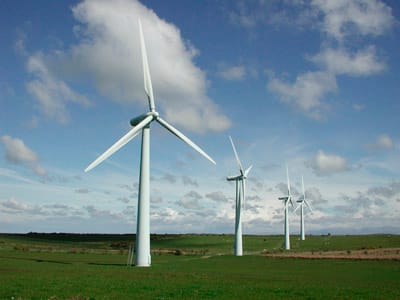California to benefit from Google's investment in world's largest wind farm


Google has invested $100 million in Shepherds Flat Wind Farm in Oregon, which when completed, will be the largest wind farm in the world, producing 845 MW of clean energy. This follows on its recent investments into solar power tower energy and mobile biofuel production from waste, both in California. Google has now put more than $350 million into renewable energy.
The power generated at Shepherds Flat will be sold under long-term contracts to Southern California Edison and will help California reach its ambitious goal of 33% renewable energy by 2020. The wind turbines will use advanced permanent magnet generator technology for the first time in the United States. This enables rotors in the generators to spin more efficiently, which cuts costs and improves reliability.
These investments are not coming from Google's philanthropic arm but from Google itself, which has stated that it wants to become carbon neutral, even as its vast, worldwide data centers use increasingly enormous amounts of power. Financing and building a renewable energy generation network will certainly go a long way towards meeting that goal. It may also prove immensely profitable as California utilities increasingly will be forced to buy renewable energy generated outside of the state to meet the 33% renewable energy requirement. Google and other investors in renewable energy in states near California will be happy to sell it to them.
Shepherds Flat Wind Farm will be located on 30 square miles of private property in eastern Oregon, with 338 GE 2.5 MW turbines costing $1.4 billion, including ten-year contracts. In addition, 85 miles of roads will be built as well as 90 miles of power lines. Truly, this is an immense project and will cost an estimated $2 billion when completed.
What renewable energy needs, and what Google and many others are working on, is energy storage for renewable power. Wind, solar, hydro, and geothermal energy are all variable in the amounts of power they produce (Tidal power by contrast, while also variable, is utterly reliable as to when the power will be produced). Somehow, there needs to be a way for renewable energy to store power for future use. This would greatly help our current grid, which wasn't designed for power plants that generate wildly fluctuating amounts of power. The most obvious way to store power is of course by using batteries. But to do this at grid scale requires massive arrays of batteries storing hundreds of megawatts. The technology isn't there yet, but no doubt will be in the next few years.
Google is to be commended for championing renewable energy, aiming to be carbon neutral, and putting up large sums of money to practice what it preaches.


